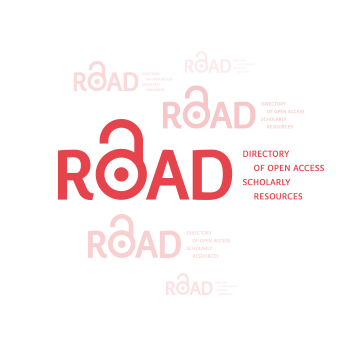The Use of Short Stories to Improve Vocabulary: Understanding the Perceptions of EFL Students
Resumen
The integration of technologies, such as virtual learning environments, web-based collaborative setups, and gamified applications, tend to promote the positive effects of short stories on vocabulary learning in a foreign language. This study investigates the effectiveness of using short stories as a pedagogical tool for enhancing vocabulary acquisition in English as a Foreign Language (EFL) students. Two cohorts of participants took part simultaneously in a course to improve vocabulary through short stories graded according to their level of proficiency. The highly validated tool MSLQ was applied to gather perceptions of motivation and learning strategies throughout the course. Correlational analyses suggest that short stories, combined with appropriate technological and pedagogical strategies, offer a powerful approach to vocabulary learning in diverse educational contexts. The study also emphasizes the importance of self-regulated learning mechanisms, which promote learner autonomy and self-efficacy, leading to better vocabulary outcomes. This research contributes to the understanding of effective vocabulary learning and provides practical insights for educators seeking to enhance EFL students' language mastery.
Descargas
Citas
Abdalrahman, K. K. (2022). Teaching and learning vocabulary through short stories. Canadian Journal of Language and Literature Studies, 2(2), 7-15.
Albán Bedoya, I., Ocaña-Garzón, M. (2022). Educational Programming as a Strategy for the Development of Logical-Mathematical Thinking. In: Botto-Tobar, M., Cruz, H., Díaz Cadena, A., Durakovic, B. (eds) Emerging Research in Intelligent Systems. CIT 2021. Lecture Notes in Networks and Systems, vol 405. Springer, Cham. https://doi.org/10.1007/978-3-030-96043-8_24
Adyana, R. (2016). Using Short Stories to Enhance Students’ Vocabulary Mastery in Writing Narrative Texts (A Classroom Action Research at the Tenth Grade Students of Islamic Senior High School Ahmad Yani Batang, Central Java in 2015/2016) at Sebelas Maret University.
Agung, G. (2017). Short stories: the powerful media to foster students’vocabulary mastery in reading. Ideas: Journal on English Language Teaching and Learning, Linguistics and Literature, 5(1).
Ahmed, N. (2017). Vocabulary enhancement of female esl learners through short stories: a rural/ urban perspective. LLT Journal: A Journal on Language and Language Teaching, 20(2), 133–138. https://doi.org/10.24071/llt.v20i2.740
Aguirre Chávez , J. F., Franco Gallegos , L. I., Montes Mata, K. J., Ponce de León, A. C., & Robles Hernández, G. S. I. (2024). Impacto de la actividad física en la prevención de enfermedades cardiovasculares: un análisis sistemático . Revista Científica De Salud Y Desarrollo Humano, 5(2), 274–302. https://doi.org/10.61368/r.s.d.h.v5i2.136
Bakhodirovna, Akhmedova Mehrinigor (2015). Effectiveness of teaching vocabulary through short stories. World Science, (1 (1)), 55-57.
Bazurto Palma, C. J., & Ocaña Garzón, M. (2023). The use of a virtual environment to improve students’ Listening skills: a learning analytics approach. Ciencia Latina Revista Científica Multidisciplinar, 7(2), 2937-2953. https://doi.org/10.37811/cl_rcm.v7i2.5537
Bhatti, M. S., Arshad, A., & Mukhtar, R. (2020). Improving Vocabulary Through Short Stories At Elementary Level. Proceedings of 5th International Scientific Research Congress (IBAD-2020), September, 2020 – Istanbul, Turkey.
Bhatti, M. S., Iqbal, A., Rafique, Z., Noreen, S., & Tabassum, F. (2022). Short stories as an innovative EFL teaching technique to improve Pakistani elementary students’ English vocabulary. Journal on English as a Foreign Language, 12(2), 405–420. https://doi.org/10.23971/jefl.v12i2.4060
Canlı-Bekar, N. (2019). Exploring the effects of digital storytelling on young learners’ motivation, vocabulary learning and retention in foreign language teaching. Unpublished MA Thesis, 1-96.
Chen, C. M., Chen, L. C., & Yang, S. M. (2018). An English vocabulary learning app with self-regulated learning mechanism to improve learning performance and motivation. Computer Assisted Language Learning, 32(3), 237–260. https://doi.org/10.1080/09588221.2018.1485708
Choi, Y., Zhang, D., Lin, C. H., & Zhang, Y. (2018). Self-regulated learning of vocabulary in English as a foreign language. Asian EFL Journal Quarterly, 54-82.
Deng, Q., & Trainin, G. (2020). Self-efficacy and attitudes for vocabulary strategies among English learners and native speakers. Reading horizons.
Da Silva Santos , F., & López Vargas , R. (2020). Efecto del Estrés en la Función Inmune en Pacientes con Enfermedades Autoinmunes: una Revisión de Estudios Latinoamericanos. Revista Científica De Salud Y Desarrollo Humano, 1(1), 46–59. https://doi.org/10.61368/r.s.d.h.v1i1.9
M. M. Elaish, N. A. Ghani, L. Shuib and A. Al-Haiqi, "Development of a Mobile Game Application to Boost Students’ Motivation in Learning English Vocabulary," in IEEE Access, vol. 7, pp. 13326-13337, 2019, doi: 10.1109/ACCESS.2019.2891504.
Eklesia, T. R., & Angelina, P. (2020). Using Short Stories to Teach Vocabulary in Basic Reading 2 Class at Sanata Dharma University. Indonesian Journal of English Language Studies (IJELS), 5(2), 46–58. https://doi.org/10.24071/ijels.v5i2.2823
Farajee, M., & Arabmofrad, A. (2015). The Effect of Collaborative Strategic Vocabulary Learning on EFL Learners' Self-Efficacy. Journal of Applied Linguistics and Language Research, 2(6), 103-118.
Fernández C., F. (2024). Determinación De Erodabilidad En Áreas De Influencia Cuenca Poopo Región Andina De Bolivia. Horizonte Académico, 4(4), 63–78. Recuperado a partir de
https://horizonteacademico.org/index.php/horizonte/article/view/19
García, S. (2023). Desarrollo de productos y servicios sostenibles y ecológicamente responsables. Una revisión de la literatura, 2021. Revista Veritas De Difusão Científica, 4(2), 102–119. https://doi.org/10.61616/rvdc.v4i2.49
Hong, Z. W., Shen, W. W., Chin, K. Y., & Chen, Y. L. (2022). The impact of a hidden object game on english vocabulary learning and motivation. Journal of Internet Technology, 23(1), 73-78.
Lai, J.-Y., & Chang, L.-T. (2021). Impacts of Augmented Reality Apps on First Graders’ Motivation and Performance in English Vocabulary Learning. Sage Open, 11(4).
https://doi.org/10.1177/21582440211047549
Lai, C. H., Jong, B. S., Hsia, Y. T., & Lin, T. W. (2020). Integrating flash cards with narratives for mobile learning of English vocabulary. LearnTechLib
Liu, S. H. J., Lan, Y. J., & Ho, C. Y. Y. (2014). Exploring the relationship between self-regulated vocabulary learning and web-based collaboration. Journal of Educational Technology & Society, 17(4), 404-419.
López Hernández, L. A. (2024). Las Prácticas Autoritarias y la Generación de Ambientes Laborales Educativos bajo la Influencia del Estrés. Estudios Y Perspectivas Revista Científica Y Académica , 4(2), 235–250. https://doi.org/10.61384/r.c.a.v4i2.217
Ma, Y., & Lin, W. (2015). A Study on the Relationship between English Reading Comprehension and English Vocabulary Knowledge. Education Research International, 2015, 1–14. https://doi.org/10.1155/2015/209154
Mehrabian, N., & Salehi, H. (2019). The effects of using diverse vocabulary learning strategies on word mastery: a review. Journal of Applied Studies in Language, 3(1), 100-114.
Mizumoto, A. (2013). Effects of self-regulated vocabulary learning process on self-efficacy. Innovation in Language Learning and Teaching, 7(3), 253–265.
https://doi.org/10.1080/17501229.2013.836206
Mohamned, E. M. G. M. (2022). Impact of Teaching Short Stories on Sudanese EFL Learners’ Vocabulary learning. Journal of English Studies in Arabia Felix, 1(1), 52–60. https://doi.org/10.56540/jesaf.v1i1.14
Molla Gebre, B. (2016). Psycholinguistic ambiance of short stories in enhancing students’ reading comprehension and vocabulary power. International Journal of Foreign Language Teaching and Research, 4(13), 97-108.
Medina Nolasco, E. K., Mendoza Buleje, E. R., Vilca Apaza, G. R., Mamani Fernández, N. N., & Alfaro Campos, K. (2024). Tamizaje de cáncer de cuello uterino en mujeres de una región Andina del Perú. Arandu UTIC, 11(1), 50–63. https://doi.org/10.69639/arandu.v11i1.177
Ocana, M., Khosravi, H. & Bakharia, M. (2019 Profiling Language Learners in the Big Data Era. In Y. W. Chew, K. M. Chan, and A. Alphonso (Eds.), Personalised Learning. Diverse Goals. One Heart.ASCILITE 2019 Singapore (pp. 237-245).
Ocaña, M., Almeida, E., Albán, S. (2022). How Did Children Learn in an Online Course During Lockdown?: A Piagetian Approximation. In: Botto-Tobar, M., Cruz, H., Díaz Cadena, A., Durakovic, B. (eds) Emerging Research in Intelligent Systems. CIT 2021. Lecture Notes in Networks and Systems, vol 406. Springer, Cham. https://doi.org/10.1007/978-3-030-96046-9_20
Ocaña, M., Mejía, R., Larrea, C., Cruz, E., Santana, L., Empinotti, M. (2021). Investigating the Importance of Student Location and Time Spent Online in Academic Performance and Self-regulation. In: Botto-Tobar, M., Cruz, H., Díaz Cadena, A. (eds) Artificial Intelligence, Computer and Software Engineering Advances. CIT 2020. Advances in Intelligent Systems and Computing, vol 1327. Springer, Cham. https://doi.org/10.1007/978-3-030-68083-1_31
Onoda, S. (2014). Examining the Relationships between Self-Efficacy, Effort Regulation Strategy Use, and English Vocabulary Skills. Studies in Self-Access Learning Journal, 5(4).
Paramma, M. A., & Shafa, S. (2022). Increasing novice EFL learners’ vocabulary based on short Islamic stories in an Islamic higher education. Borneo International Journal of Islamic Studies (BIJIS), 62-76.
Parvareshbar, F., & Ghoorchaei, B. (2016). The effect of using short stories on vocabulary learning of Iranian EFL learners. Theory and Practice in Language Studies, 6(7), 1476.
Pintrich, P. R. (1991). A manual for the use of the Motivated Strategies for Learning Questionnaire (MSLQ).
Pintrich, P. R., Smith, D. A., Garcia, T., & McKeachie, W. J. (1993). Reliability and predictive validity of the Motivated Strategies for Learning Questionnaire (MSLQ). Educational and psychological measurement, 53(3), 801-813.
Quinga, Y., Pilataxi, N., Carvajal, V., Ocaña, M. (2022). Virtual Activities to Strengthen Basic Math Skills in Children. In: Botto-Tobar, M., Cruz, H., Díaz Cadena, A., Durakovic, B. (eds) Emerging Research in Intelligent Systems. CIT 2021. Lecture Notes in Networks and Systems, vol 406. Springer, Cham. https://doi.org/10.1007/978-3-030-96046-9_13
Şahin Kızıl, A., & Savran, Z. (2018). Assessing self-regulated learning: The case of vocabulary learning through information and communication technologies. Computer Assisted Language Learning, 31(5–6), 599–616. https://doi.org/10.1080/09588221.2018.1428201
Sariana, S., Dollah, S., & Talib, A. (2022). Using Local Short Stories to Improve Students’ Vocabulary. Journal of Excellence in English Language Education, 1(1), 11-21.
Tarakçıoğlu, A., & Tunçarslan, H. (2014). The effect of short stories on teaching vocabulary to very young learners (aged 3-4-year): A suggested common syllabus. Journal of Language and Linguistic Studies, 10(2).
Vega, B., Velasco, M., Ocaña, M., Rebeca, M. (2022). Scratchjr Visual Programming Language for Early Math Skills Development in 4–7 years Old Children. In: Botto-Tobar, M., Cruz, H., Díaz Cadena, A., Durakovic, B. (eds) Emerging Research in Intelligent Systems. CIT 2021. Lecture Notes in Networks and Systems, vol 406. Springer, Cham. https://doi.org/10.1007/978-3-030-96046-9_19
Vargas Serafin, A. A. (2023). El cuidado de sí y la estética de la existencia: prácticas para reflexionar en torno a la educación. Una aproximación desde Michel Foucault . Emergentes - Revista Científica, 3(2), 32–42. https://doi.org/10.60112/erc.v3i2.30
Wang, W.-Y., & Huang, Y.-M. (2017). Interactive Syllable-Based English Vocabulary Learning in a Context-Aware Environment. Journal of Educational Computing Research, 55(2), 219-239. https://doi.org/10.1177/0735633116663212
Wijayanti, E. (2020). The effect of reading newspaper and short stories on students’ vocabulary size at Cenderawasih University setting. ENGLISH FRANCA: Academic Journal of English Language and Education, 4(1), 17-34.
Yang, Q. F., Chang, S. C., Hwang, G. J., & Zou, D. (2020). Balancing cognitive complexity and gaming level: Effects of a cognitive complexity-based competition game on EFL students' English vocabulary learning performance, anxiety and behaviors. Computers & Education, 148, 103808.
Yu, Z. (2023). Learning Outcomes, Motivation, and Satisfaction in Gamified English Vocabulary Learning. Sage Open, 13(2). https://doi.org/10.1177/21582440231158332
Ziegler, N. (2015). The Predictive Value of the Self-regulating Capacity in Vocabulary Learning Scale. Applied Linguistics, amv020. https://doi.org/10.1093/applin/amv020
Derechos de autor 2024 Alan García-Cañarte, Mauro Ocaña

Esta obra está bajo licencia internacional Creative Commons Reconocimiento 4.0.












.png)




















.png)
1.png)


